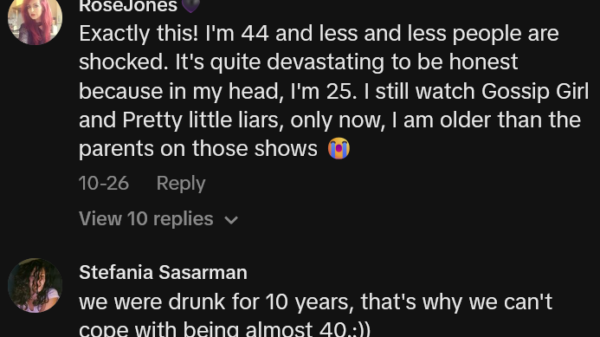UPDATE: Over 350 current and former VA doctors and caregivers have urgently warned the Department of Veterans Affairs that recent staffing cuts and policy changes jeopardize veterans’ healthcare. In a mass letter sent Wednesday to VA Secretary Doug Collins, the agency’s inspector general, and congressional leaders, the group highlights the devastating impact of outsourcing care and budget reductions.
“We write to raise urgent concerns about proposed policies which will undermine VA’s healthcare system, overwhelm VA’s budget, and negatively affect the lives of all veterans,” the letter states. Originally signed by over 160 medical professionals, the letter’s signatories have swelled to 350, reflecting a growing alarm among VA healthcare providers.
The letter, entitled “The Lincoln Declaration,” refers to President Abraham Lincoln’s commitment to veteran care, emphasizing the need for a robust, integrated healthcare system tailored for veterans. Doctors express deep concern that outsourcing care to private sector providers will lead to resource diversion from the Veterans Health Administration (VHA), the backbone of veterans’ healthcare services.
Recent months have seen similar sentiments echoed by numerous VA staff members, many of whom spoke anonymously for fear of retaliation. The letter does not directly mention President Donald Trump, but it points to significant staffing changes and policies implemented since his administration began its second term.
In response, VA Press Secretary Peter Kasperowicz defended the changes, asserting they are designed to improve efficiency and better serve veterans. He stated, “VA is serving Veterans much better under the Trump Administration than it was under the Biden Administration, and the numbers prove it.” Kasperowicz referenced a significant reduction in the backlog of veterans awaiting benefits and the realignment of $800 million to enhance VA infrastructure.
Democratic Senator Richard Blumenthal, a vocal advocate for veterans, described the doctors’ letter as a “five alarm fire” warning of severe damage to VA healthcare due to funding cuts and personnel layoffs. He urged that their calls for action must be taken seriously.
As the situation develops, doctors like Dr. Dean Winslow, a retired Air Force colonel, emphasize the importance of maintaining a specialized healthcare system for veterans. “The non-VA system doesn’t have the expertise,” Winslow stated. “It’s worth fighting for.”
The implications of these policy shifts are dire. If the trend towards community care persists, VHA facilities may close, forcing veterans into private systems that are often overburdened and ill-equipped to handle their unique needs.
Psychologist Joye Henrie, who operates a private clinic in Albuquerque, voiced her concern as both a veteran and a provider, stating, “Farming us veterans out to the lowest bidder is hardly in keeping with Lincoln’s promise. Veterans are not a commodity, nor should our healthcare be.”
The urgency of the matter has also attracted the attention of advocacy groups. Kyleanne Hunter, CEO of the Iraq and Afghanistan Veterans of America (IAVA), stressed, “The VA is a public health system that centers on veteran care. We must do everything we can to ensure that promise is kept.” Alarmingly, the IAVA reports that only 31% of its members felt private providers understood their medical needs, with merely 14% expressing confidence in coordination between private and VA care teams.
As the VA faces pressure from both its professionals and advocacy groups, the future of veterans’ healthcare hangs in the balance. The department’s next steps will be crucial in determining whether veterans will continue to receive the specialized, effective care they deserve.
Stay tuned for more updates on this urgent and developing situation affecting millions of veterans and their families.





































































